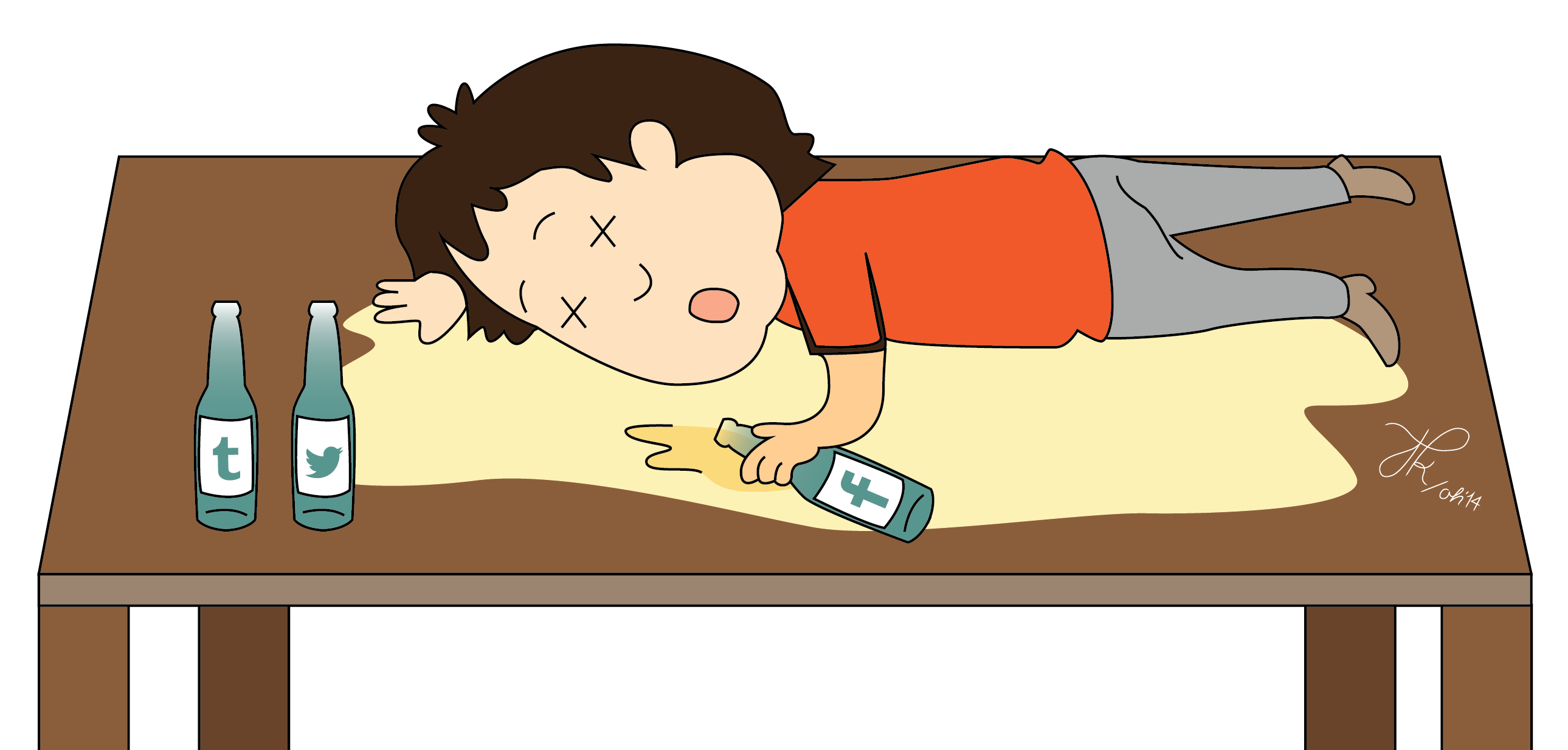
For those of you who have been lucky enough to have been shielded from such ignorance, the recent NekNomination craze is a disturbing practice which calls for people to chug large quantities of alcohol and then nominate others to replicate the senseless ritual. I have seen my fair share of foolish viral videos, but these ones take the cake — by a landslide.
While watching some of these videos, I simply shook my head in disbelief.
I began to search for the appropriate words to describe the continuously growing phenomenon we call social media. With it, I have noticed a troubling contradiction: empowerment and destruction.
One undoubtedly feels a jolt of confidence knowing that without any specific expertise, hundreds, thousands or even millions of online audience members can endorse their thoughts and actions by sharing or “liking” them on social media. Yet, in such a wide network where content is infinite, we are endlessly bombarded with entertainment options that make the fight against our low attention spans even more challenging.
For many, standing out is not only a top priority, it’s the only priority. And as we somehow grew accustomed to the initial wave of NekNomination videos, the extreme lengths to which NekNominees go to get their 15 minutes of social media fame reveal just how destructive these platforms can be.
When a person, seemingly without giving it a second thought, is willing to include urine in their alcoholic beverages or to follow their guzzling exploits by diving into a river in order to “stand out,” it begs the question, how far will some go to reach a pointless objective?
Sadly, there have been at least five deaths around the world that have been linked to this farcical game. Jonny Byrne, a 19-year-old from Carlow, Ireland, died last month after drinking a pint and jumping into the river.
An optimistic take on these senseless tragedies is that they will hopefully raise awareness about the hazards of NekNomination stunts, and ultimately help scale back the negligence that is evidenced in online behaviour. Unfortunately, I am not one of those optimists.
Social media replicates and considerably enhances the pressurized environment found in high schools and colleges.
“We found in our study that people, college students, are not getting a sense of social support from being on the phone,” UCLA developmental psychologist Patricia Greenfield told CBC News, Feb. 24. “They’re getting social support through bigger networks and having a sense that their audience is large.”
Social media metrics through which we express approval such as retweets, likes and views dominate the thoughts of those who are on a quest for social acceptance. Along with other attention-desperate stunts caught on camera, NekNomination videos excel in all of these categories. These larger networks breed more peer pressure, which in turn leads to more careless behaviour. They become indisputable social proof that outlandish acts can be someone’s ticket to Internet superstardom.
In fairness, these platforms enable us to connect with others beyond all boundaries as well as exchange information and ideas. Unquestionably, the content shared on social media is not always cringe-worthy. Instead of condemning social media together, I prefer to highlight the astounding sharpness of its double-edged sword: empowering and destructive.
However, these online drinking binges have me wondering if the former outweighs the latter.




